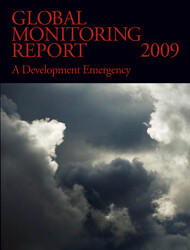
The Gambia: Technical Assistance Report-Climate Policy Diagnostic
Environmental Economics , Environmental Conservation and Protection , Natural Resources , Public Policy- Environmental Policy , Agribusiness , Climate Adaptation , Climate change , Climate Mitigation , Climate policy , Climate Policy , Climate resilience , Fiscal Policy , Greenhouse gas emissions , Natural disasters , The Gambia , , climate policy diagnostic , policy consideration , climate Policy Assessment tool , IMF resident representative , disaster risk financing instrument , climate mitigation policy , B , land management , climate adaptation policy , IMF's Fiscal Affairs Department , Agricultural sector , Climate finance , Global , West Africa , transfer program , financial situation , accelerated depreciation , climate change management , land area , cadastral map , fiscal consolidation effort , Gambian government , forest management



